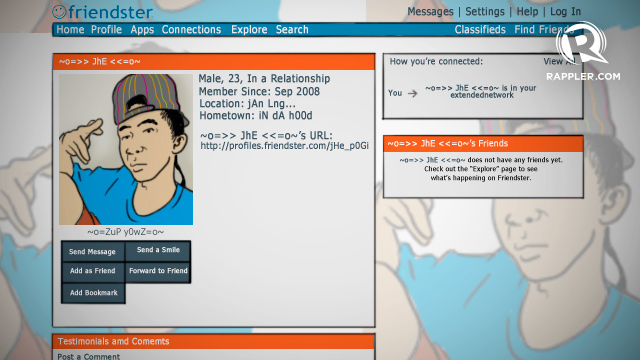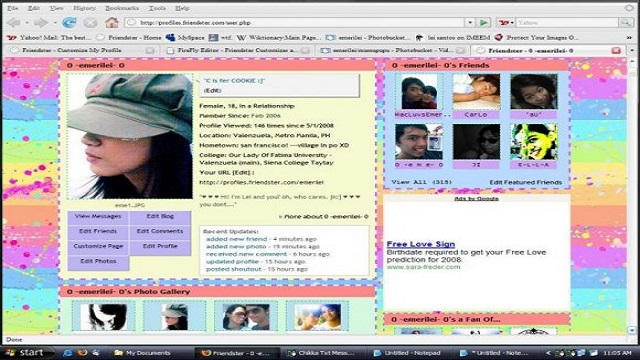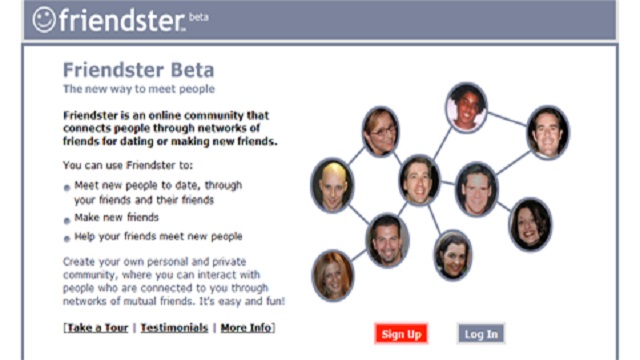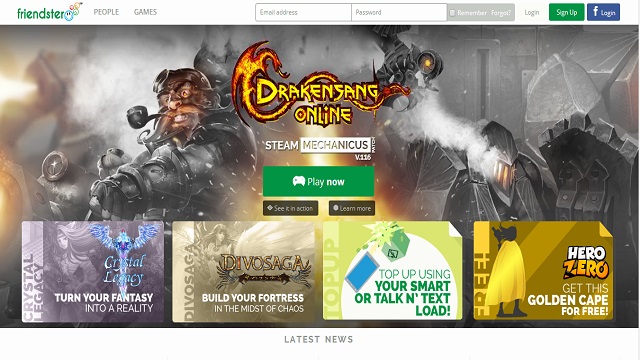SUMMARY
This is AI generated summarization, which may have errors. For context, always refer to the full article.

MANILA, Philippines – Remember Friendster?
Don’t worry; we barely do too, and whatever memories we have of it are mostly laced with shame. Remember the gaudy profile pics with the sparkly, animated lettering? Or the sappy, long-winded dedications you’d leave on your pals’ pages? Or the tricky stalker settings that let you see your crush’s profile only if you let them see yours?

Most of us are relieved that Friendster is a thing of the past. But it would surprise you to know that today’s social media giant, Facebook, was a mere two years younger.
How come Facebook just celebrated its 10th year anniversary, its influence on our daily lives undeniable, while Friendster is the butt of every social media manager’s jokes? (READ: Facebook lets users take a ‘look back’)
No less than Friendster founder Jonathan Abrams has decided to explain why, after years of avoiding the topic. In a recent interview with Seth Fiegerman on Mashable, he confessed that Friendster’s downfall was a complicated matter fraught with many missed opportunities.

Abrams mentioned key moments, though, that surely contributed to his creation’s demise:
1) Friendster did not push for certain projects ahead of Facebook
Among the things Facebook is known for are a) its birth on a college campus, and its initial spreading across other college campuses; b) its Newsfeed; and c) its social graph. Believe it or not, but Adams claims that some of Friendster’s plans included a college edition, a newsfeed, and a social graph — all ahead of Facebook. But these plans remained just that, only to surface through their competitor in the future.
2) Friendster was not addressing tech issues
Friendster suffered through many technology issues, but they weren’t addressed because the site’s investors wanted to focus on other concerns. Ironically, thanks to all the stability issues it underwent through the years, Friendster’s market share dropped dramatically.
3) Friendster didn’t buy Facebook when it had the chance
In 2004, Friendster’s head honchos actually met up with Mark Zuckerberg and his team in the hopes of buying Facebook. The problem? Abrams says they didn’t offer the kind of numbers Zuckerberg wanted.
4) Friendster allowed Facebook to buy its entire portfolio of social networking patents
Friendster drove a hard bargain when they were the buyers, but were completely complacent when they were the sellers. Then again, Friendster did sell it all off for $40 million at a time when it was all but obsolete. But should they have been that easy?
5) Friendster didn’t sell itself to big sites when it had the chance
Finally, Yahoo!, AOL, and Google actually offered to buy Friendster early on, but Abrams and his team didn’t give in. Imagine if Google, in particular, bought Friendster! Google Plus might have been very different – and maybe more successful.

The moral of the story: When it comes to online ventures, think fast and act quick. Second guessing will be your Waterloo.
Friendster still exists to this day, but looks nothing like it used to. Purchased in the end by a Malaysian online payments provider, it deleted all its former users and started fresh as a gaming service. Most visitors these days are concentrated in just Malaysia, Indonesia, and the Philippines.
Despite all of this, however, Abrams looks back on Friendster with positivity.
“Whenever you step out and do something, you are going to get both positive and negative feedback. That’s just what happens when you create things,” he tells Mashable. “Absolutely there are people who have criticized me for things involving Friendster — sometimes things that are not true. But overall, most of the legacy of Friendster is pretty positive. And there are a lot of connections and relationships that I have that may have been started because of Friendster.” – Rappler.com
How would you have saved Friendster from extinction? Share you thoughts in the comments section!
Add a comment
How does this make you feel?





There are no comments yet. Add your comment to start the conversation.